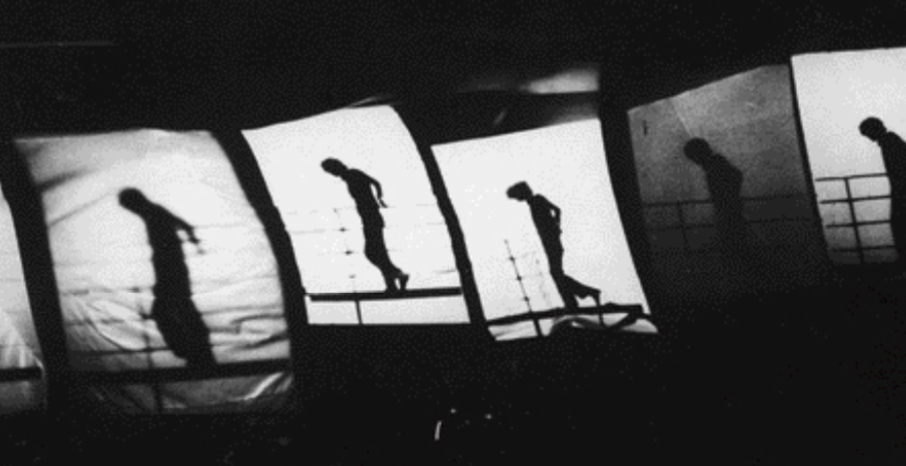
Vox Populi and Collaborative Cataloging Japan (CCJ) are pleased to co-present an artist lecture and video-based performance with Japanese artist Shuzo Azuchi Gulliver, who will discuss his experimental practice in conceptual and performative film in Japan during the late 1960s. Part of CCJ’s ongoing Japanese Expanded Cinema Research Initiative, a recently-launched project made possible through support from the Andy Warhol Foundation, this event occasions one of the first substantial introductions of Gulliver’s work to an American audience.
Born in 1947 in Japan’s Shiga-prefecture, Gulliver began making art in the mid-1960s during high school. Drawing from a vocabulary of theatrical performance and instructional happenings, Gulliver and his peers formed two artist collectives in 1967—Remandaran and The Play—whose understated street-based performances interacted with the public in Kyoto and Osaka. Upon moving to Tokyo in the late 1960s, Gulliver began a series of conceptual experiments in film. While Switch (1966–67) and Watch (1966–67) called to attention the interaction between gestures registered in the film and the surrounding context of the screening event, Film (1967) and Screen (1967) emphasized the physicality and materiality of the medium itself. These projects culminated in Cinematic Illumination (1968–69), an ambitious installation of eighteen automatic slide projectors, which projected words and washes of color upon audience members who were immersed within a large-scale, 360-degree environment.
Sunday’s programming will also feature a lecture by Dr. Erin Schoneveld, Assistant Professor in the Department of East Asian Languages and Cultures at Haverford College, who will further contextualize Gulliver’s practice through an overview of the historical and cultural context of experimental aesthetic production in postwar Japan, and will touch upon a broad field of art and cinema that has been defined, in part, by the histories of the Gutai, Jikken Kobo, and Fluxus movements, and a rich legacy of experimental and narrative filmmaking that developed during postwar Japanese period. This event is supported by a grant from the Andy Warhol Foundation.
Collaborative Cataloging Japan (CCJ) is a 501(c)3 not-for-profit organization that provides archival and media preservation support to institutional and private collections of Japanese experimental moving image works produced from the 1950s through 1980s, with the goals of documentation, preservation, and opening access internationally to these materials. Formed in 1988, Vox Populi is Philadelphia’s longest-running non-profit arts collective, and is dedicated to presenting experimental and advanced art and performance by underrepresented artists from Philadelphia and elsewhere. More information is available at http://www.collabjapan.org/ and at https://voxpopuligallery.org/



